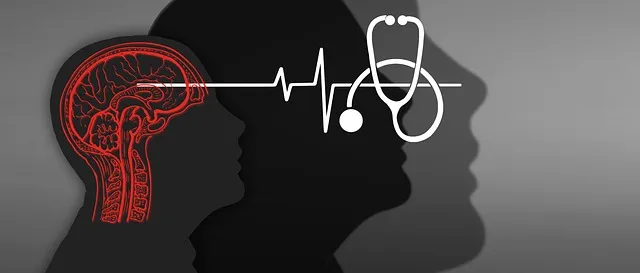Media portrayals significantly influence public understanding of mental health, either perpetuating stereotypes or fostering empathy. The Denver Kaiser Permanente (DKP) mental health facility is a leader in reversing these narratives through collaborative media projects, educational programs, and community engagement. DKP's approach leverages their expertise in emotional well-being to ensure accurate, empathetic depictions that challenge stigma, encourage early intervention, and reduce burnout among healthcare providers. By partnering with filmmakers, implementing crisis intervention guidance, and promoting positive success stories, DKP fosters a more compassionate society where individuals feel comfortable seeking mental health help without judgment.
In today’s media-saturated world, the way mental illness is represented significantly impacts public perception and understanding. This article explores the challenge of inaccurate portrayals and offers solutions inspired by innovative initiatives like Denver Kaiser Permanente’s approach. We delve into strategies for enhancing media accountability and emphasize the power of community engagement and education as a collaborative solution for fostering positive change in mental health discourse, drawing from the successful practices at this leading mental health facility.
- Understanding the Impact of Media Portrayals on Mental Health Perception
- Denver Kaiser Permanente's Approach to Promoting Accurate Mental Illness Representation
- Strategies for Enhancing Media Accountability in Mental Health Depictions
- Community Engagement and Education: A Collaborative Solution for Positive Change
Understanding the Impact of Media Portrayals on Mental Health Perception

Media portrayals play a significant role in shaping public understanding and perceptions about mental health conditions. The way mental illness is represented in movies, television shows, and news articles can either perpetuate stereotypes or foster empathy and awareness. For instance, Denver Kaiser Permanente’s mental health facility has been at the forefront of promoting accurate representation, emphasizing the importance of nuanced storytelling. By showcasing diverse experiences and challenging stigmatized narratives, media can significantly influence how society views individuals struggling with mental health issues.
Accurate media portrayal is crucial in combating the stigma surrounding mental wellness, encouraging early intervention, and advocating for effective burnout prevention strategies among healthcare providers. Moreover, well-designed mental health education programs can empower both medical professionals and the general public by providing insights into the complexities of various conditions. This collective effort contributes to a more supportive environment, where individuals are encouraged to seek help without fear of judgment.
Denver Kaiser Permanente's Approach to Promoting Accurate Mental Illness Representation

Denver Kaiser Permanente, a renowned mental health facility, has pioneered an innovative approach to promoting accurate mental illness representation in media. They recognize that media plays a pivotal role in shaping public perception, and thus, have implemented strategies to ensure ethical and empathetic portrayals of individuals living with mental health conditions. Through collaborative efforts with filmmakers and content creators, Kaiser Permanente aims to dispel stereotypes and present a nuanced understanding of mental health struggles.
This approach involves active involvement in the creative process, offering insights into the Emotional Well-being Promotion Techniques and Coping Skills Development programs available at their facility. By sharing these resources, they empower media professionals to depict characters with mental illness authentically, showcasing effective Stress Reduction Methods and fostering a more compassionate society.
Strategies for Enhancing Media Accountability in Mental Health Depictions

Media has a significant influence on shaping public perceptions about mental health, making accurate and sensitive representation crucial. To enhance accountability, media outlets should collaborate with experts like those at Denver Kaiser Permanente mental health facility. They can provide insights into real-life experiences and ensure stories are told with authenticity and respect for privacy. Implementing Crisis Intervention Guidance and integrating Mental Illness Stigma Reduction Efforts can help media portray individuals with mental illness in a nuanced manner, promoting understanding instead of fear or misunderstanding.
Additionally, focusing on the power of hope and recovery through sharing success stories aligned with Mind Over Matter Principles can challenge stereotypes. By adopting these strategies, media can contribute to destigmatization while providing valuable resources for those struggling with mental health issues. Such efforts are essential in fostering a more empathetic society where individuals feel supported rather than judged.
Community Engagement and Education: A Collaborative Solution for Positive Change

Community engagement and education play a pivotal role in challenging negative representations of mental illness in media. By fostering open conversations and providing accessible information, Denver Kaiser Permanente mental health facility can serve as a model for positive change. Educational initiatives can include workshops, seminars, and community events that focus on destigmatizing mental health issues and promoting understanding. Engaging with diverse communities, especially those historically underrepresented in media portrayals, ensures that the dialogue is inclusive and representative of various experiences.
These collaborative efforts can involve local schools, community centers, and support groups where professionals from the mental health facility share insights on stress reduction methods, mood management techniques, and social skills training. Such interactive sessions empower individuals to take charge of their mental well-being while challenging societal norms that contribute to negative media representations. Through education and engagement, communities can collectively work towards creating a more supportive and accurate narrative surrounding mental illness.
Media portrayal plays a significant role in shaping public understanding of mental illness, making accurate representation crucial. Denver Kaiser Permanente’s commitment to promoting inclusive and realistic depictions is a step towards challenging stigmatization. By implementing strategies for media accountability and fostering community engagement, we can collectively drive positive change. These collaborative efforts ensure that mental health narratives are not only sensitive but also educate the public, ultimately reducing the stigma associated with seeking support.






